
Editor's note: Gayle Tzemach Lemmon, a former ABC News producer, is the deputy director of the Women and Foreign Policy Program at the Council on Foreign Relations. Her book, "The Dressmaker of Khair Khana: Five Sisters, One Remarkable Family, and the Woman Who Risked Everything to Keep Them Safe" (HarperCollins), will be published in March. It tells the story of a young entrepreneur whose business created jobs and hope for neighborhood women during the Taliban years.
Kabul, Afghanistan (CNN) -- The story of a young woman maimed by the Taliban has captured the nation's attention. Her name is Bibi Aisha, and her nose and ears were cut off by her husband and his family as punishment for the crime of attempting to escape a life of domestic battery and abuse.
The shocking photo of this young survivor occupies the cover of a recent Time magazine. The discussion about her story -- and her image -- has ricocheted far beyond American newsstands, igniting a debate among bloggers, TV anchors and print reporters about what her story "means" for the U.S. war effort in Afghanistan nearly a decade after the attacks of September 11, 2001.
I met and wrote about Aisha last December for The Daily Beast. It is worth adding a few points to the discussion led by those who charge Time with publishing pro-war propaganda.
The U.S. military cleaned this young woman's wounds, offered her a haven for weeks and got her to a shelter. The young woman's father brought her to the local U.S. military Forward Operating Base because he trusted them to provide his daughter with the care she needed.
I have interviewed dozens of women over the past several years who, with government help, found their way to shelters and family crisis centers that did not exist before 2001. These women, many of whom have endured burnings, beatings and electrocutions at the hands of their spouses, now find safe haven in homes created by women for women and funded by the international community.
Their stories are not props to be used by either the right or the left. They are simply their stories, paid for with a great deal of suffering. When you meet these women, it is impossible not to respect how determined they are to find a better future for themselves and their children.
Aisha is only the most arresting example of the many women who have benefited from the international community's presence in Afghanistan. All across the country, even in the nation's south, Afghan women have managed to take small openings made possible with help from international forces and create opportunity for themselves and their families.
This group includes teachers, midwives -- now more than 2,500 of them -- doctors, entrepreneurs, community activists and journalists. And a high school principal who works 12 hours a day running four shifts of classes to educate all 4,000 of her female students. The West is far more accustomed to seeing these women as victims to be pitied rather than survivors to be respected, but they are working doggedly each day to create something better for their families.
They are able to do this work because, at least at the moment, they do not have a Taliban government with which to contend. Instead, they face a flawed, but still functioning, government under which they do their best to continue their work while the security situation worsens.
Recently I met a young mathematics teacher from Kandahar who told me that her biggest concern was the early age at which her students are married off by their families. "I refuse to believe the Taliban are coming back," she said. "The U.S. will never allow it."
Obscured in the current discussion is a fact on which all sides agree: Women want reconciliation. They are desperate for peace. As both the left and right acknowledge, women suffer the consequences of war immediately and with devastating consequences. Women say over and over again in interviews that if their Afghan Taliban brothers want to put down their arms and follow the constitution, they eagerly welcome them.
But many women do not see a swift withdrawal as the path toward that reconciliation. Quite the contrary. They fear that in the international community's rush for the exits, the nation's problems will be balanced on their backs once more. And that is why they are fighting for a seat at the table in any discussion of reconciliation.
I have spent a lot of time with women working in their communities, some of whom rarely give interviews and are far from the causes célèbres of either political side.
They do not want an endless U.S. military presence. To frame the discussion as such is to confuse the complex realities on the ground and further inflate already overheated rhetoric.
Instead, what they seek is simply some more time: time to create and strengthen their own Afghan National Police and Afghan National Army forces. Forces that are able to protect their constitutionally guaranteed rights to equal opportunity and justice. And forces that women themselves are now joining in increasing numbers so that they can go on fighting each day for their daughters and sons and for the next generation.
These women are hardly ignorant of history. They regularly cite 2003 and 2004, years in which critical resources that had been deployed in their country were moved to Iraq, as the beginning of the slow unraveling of their own security situation.
They complain about corruption at the national and local level. They know that their own government has hardly been a champion of women's rights: In fact, they are proud to say that it was their own agitation and political savvy that helped galvanize the international community's support to tackle the Shia Family Law and win women a more substantive role at the recent Kabul Conference.
Women are now speaking up for themselves more loudly and in greater numbers and fighting to capitalize on the space created by a military presence that -- for the moment -- has kept the Taliban from returning to power. Their goal is to be part of any substantive negotiations concerning reconciliation and to make certain their voices are included in a discussion that very directly concerns their own fate.
At a time in which cognitive constancy appears to be the goal of both the left and the right, it is regrettable that a resilient young woman who has survived unimaginable cruelty has been reduced to a Rorschach test on the war in Afghanistan.
The angry and high-decibel reaction from those who oppose the war to a dramatic image they could not ignore illustrates an unfortunate discomfort with divergent views and an unwillingness to confront the war's myriad complexities. Now is not the time for an about-face in Afghanistan simply because they do not wish to confront the very real consequences of a premature or hastily planned U.S. withdrawal.
The opinions expressed in this commentary are solely those of Gayle Tzemach Lemmon.



 By FMT Staff,
By FMT Staff, “Everyone knows about this affair. It is no secret. The AG and Azailiza (photo: right) make frequent trips overseas together and to save taxpayers’ some money, they share a hotel room rather than book separate rooms,” he said.
“Everyone knows about this affair. It is no secret. The AG and Azailiza (photo: right) make frequent trips overseas together and to save taxpayers’ some money, they share a hotel room rather than book separate rooms,” he said.


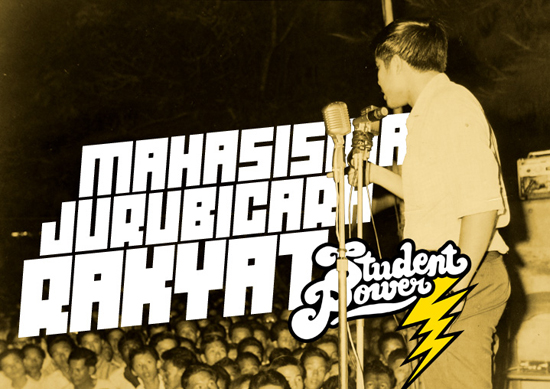
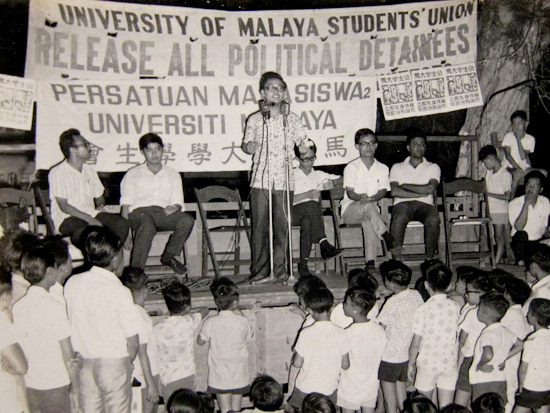
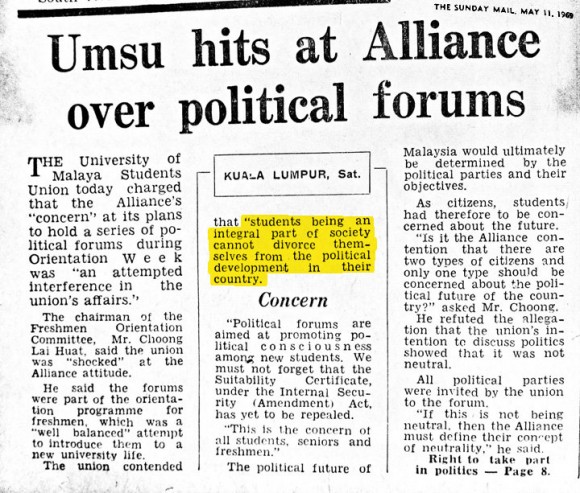
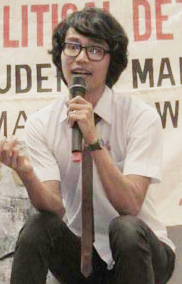
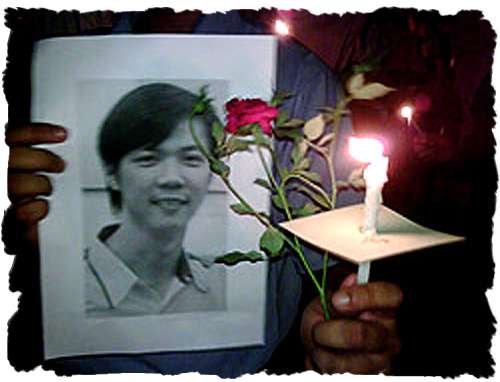

 By Zefry Dahalan - Free Malaysia Today
By Zefry Dahalan - Free Malaysia Today



